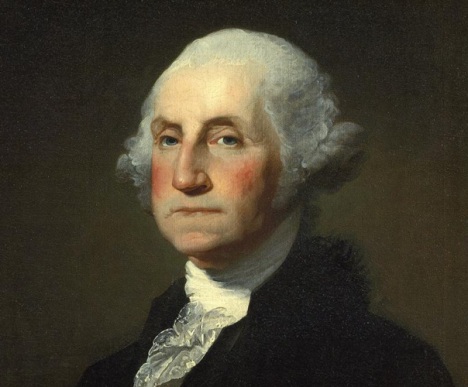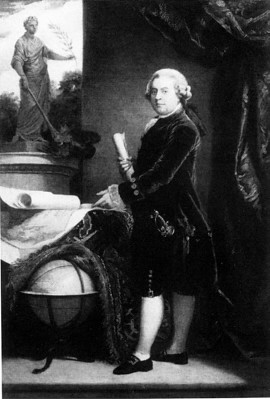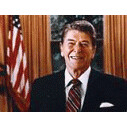Rankings
The Presidents
This is a ranking of the Presidents determined not by the perceived popularity, success, effectiveness or impact of their Presidency alone, but is also based on their accomplishments as a whole, and finally, also on as their character.
1. George Washington
George Washington is without a doubt the greatest man to ever hold the office of President of the United States. He has no rival other than John Adams in the number of his lifetime accomplishments. Among those accomplishments were that he was commander of the first revolutionary group to ever see true success and he was the first President of a republic which was a truly new experiment in history. Without his leadership, willingness to serve, and humility, the newly established nation may not have held together. Finally, he ranks among an elite few to give up absolute power. Indeed, his name belongs beside Cincinnatus, another man who gave up absolute power, twice.
2. John Adams
John Adams is a man that would have no rival, even Jefferson, if it had not been for Washington. It is indeed his own doing that he is not the greatest man our republic has ever seen, because he nominated Washington to be Commander of the Continental Army. He was the casting director of the Revolution, if you will. He is the first great orator to hold the office, in fact, warranting the title "Cicero of America". His oratorical skills led to the acquittal of the British soldiers caught up in the melee that came to be known as the Boston massacre and helped to sway the delegates at the second Continental Congress to vote for independence. The following is a list of his many accomplishments, and we've probably missed some:
- He was also a delegate to the First Continental Congress
- Served the committee that wrote the Declaration of Independence, but all credit does belong to Thomas Jefferson
- Colonial Ambassador to France
- Contributed much to articulating the concepts of liberty and republican government through his writings of the Novanglus essays,Thoughts on Government, and In Defense of the Constitutions of Government of the United States
- Worked tirelessly to secure much needed loans from the Netherlands
- Negotiated the first treaty of trade and commerce between America and a foreign power (Netherlands) after the end of the Revolution
- One of the negotiators of the Treaty of Paris (1783)
- First Ambassador to the Court of St. James, and therefore first American in an official capacity to meet with King George III after the Revolutionary War
- Wrote the bulk of the Constitution for the state of Massachusetts
- First Vice President of the United States
- Second President of the United States
Mr. Adams was an avid reader of books and had a large library he bequeathed to his eldest son, John Quincy. He believed strongly in education and the pursuit of virtue in both public and private life. One of the reasons we have ranked Mr. Adams so high on our list is that he was a man of principle who did his best to live them, and largely succeeded. One of his principles was an opposition to slavery. He gave most of his life in service to his country and he did it out of a deep belief, not a pursuit of power.
We believe he is largely overlooked, despite his service and accomplishments because of his personal demeanor, which could be perceived as brusque and vain. More importantly, though, he was not a popular President in an environment in which the faction of party was actively at work. He was not able to perceive the many players working against him, some of which were in his own Cabinet. Several actions during his time in office left such a bad feeling, and the campaign with Jefferson was so acrimonious, his memory seemed to suffer permanent damage.
Fortunately, for the benefit of all who are interested in an accurate study of American history, the excellent book by David McCullough, entitled, simply, John Adams, has reopened this chapter of history for all of us to re-examine. For more information about this book, please visit this page.
3. Thomas Jefferson
4. Abraham Lincoln
5. James Madison
6. Ronald Reagan
7. Harry S. Truman
8. Theodore Roosevelt
9. Dwight D. Eisenhower
10. John Quincy Adams
11. Andrew Jackson
12. James Monroe
13. James K. Polk
14. John F. Kennedy
15. Gerald Ford
16. Grover Cleveland
17. William McKinley
18. Andrew Johnson
19. Ulysses S. Grant
20. Franklin D. Roosevelt
21. Calvin Coolidge
22. Chester A. Arthur
23. Rutherford B. Hayes
24. Benjamin Harrison
25. George H. W. Bush
26. James A. Garfield
27. Zachary Taylor
28. William Henry Harrison
29. Herbert Hoover
30. John Tyler
31. Millard Fillmore
32. William Howard Taft
33. George W. Bush
34. Lyndon B. Johnson
35. Franklin Pierce
36. Martin Van Buren
37. Warren G. Harding
38. Jimmy Carter
39. James Buchanan
40. Richard Nixon
41. Bill Clinton
42. Woodrow Wilson


















 "We contend that for a nation to try to tax itself into
prosperity is like a man standing in a bucket and trying
to lift himself up by the handle."
"We contend that for a nation to try to tax itself into
prosperity is like a man standing in a bucket and trying
to lift himself up by the handle."





